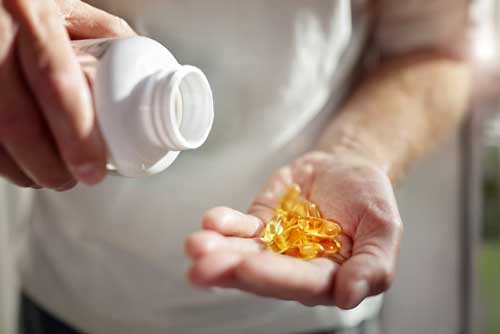Making sure you have sufficient vitamin D is one of the most important things you can do to improve your health. Studies show that vitamin D can boost immunity and prevent heart disease, depression, obesity, and osteoporosis.
But a new study shows that to use vitamin D efficiently, you need one crucial mineral.
The research was done at the Vanderbilt-Ingram Center. Scientists there noted that when some people take vitamin D supplements, their blood levels of the vitamin won’t rise. They thought it might have something to do with magnesium. A previous study by the same researchers had found that people with low vitamin D levels also have low magnesium.[1]
The new research looked at 250 subjects. Some took magnesium. Others took a placebo.
Dr. Qi Dai was the study’s lead author. He said the research showed that magnesium “optimizes” vitamin D. In other words, the mineral increases vitamin D in people who don’t have enough. And it lowers vitamin D in people who have too much.
Dr. Martha Shrubsole was a coauthor of the study. “A lot of people have received recommendations from their health care providers to take vitamin D,” Dr. Shrubsole said. But up to 80% of Americans are magnesium deficient, she noted. So even if they take large doses of vitamin D they won’t be able to raise their levels.
“Magnesium deficiency shuts down the vitamin D synthesis,” Dr. Dai said.
Even worse, a study earlier this year found that without sufficient magnesium, taking vitamin D is dangerous. It can cause calcification of arteries. This can lead to blockages that cause heart attacks.
Vitamin D Needs Magnesium
The next time you have a check-up, get your vitamin D level checked. It can be done with the same blood draw used for your other tests.
If your reading is less than 20 ng/mL, your levels are too low. Try to get 15 minutes of sun a day with your arms and legs exposed.
If you still test low, take a quality vitamin D3 supplement. We recommend 5,000 IUs a day.
And make sure you get enough magnesium. You need at least 320 mg a day. These foods are good sources:[2]
- Nuts and seeds. A quarter cup of pumpkin or squash seeds has 317 mg of magnesium. Brazil nuts offer 133. Almonds have about 100 mg.
- Fruits and vegetables. Almost all fruits and vegetables have significant amounts of magnesium. Half a cup of cooked spinach provides 83 mg.
- Wild-caught, cold-water fish. A 5-ounce serving of Chinook salmon has 184 mg of magnesium. Atlantic mackerel has 146 mg.
Researchers say the magnesium content of plant foods has decreased in the past few decades. They blame industrialized agriculture, which has depleted the magnesium from the soil. That’s why the most reliable way to get the mineral may be through a supplement.[3]
They are widely available at health food and drug stores, and online.
There are many types. We recommend the magnesium chloride form. It is soluble in water, which makes it more bioavailable. Take 350 mg a day.[4]
Vitamin D and magnesium make a great team. You want them both on your side.
Related Articles
What’s the Best Time of Day to Take Your Vitamins?
Do Prewashed Greens Lose Vitamins?
Are You Taking ‘Longevity Vitamins?’
Like this Article? Forward this article here or Share on Facebook.
References
[1]https://www.eurekalert.org/pub_releases/2018-12/vumc-ssm121318.php
[2]https://www.dietitians.ca/Your-Health/Nutrition-A-Z/Minerals/Food-Sources-of-Magnesium.aspx
[3]http://www.ancient-minerals.com/transdermal-magnesium/dietary/
[4]https://www.webmd.com/diet/supplement-guide-magnesium#2

